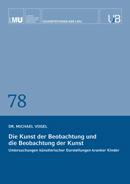Die Kunst der Beobachtung und die Beobachtung der Kunst: Untersuchung künstlerischer Darstellungen kranker Kinder
Synopsis
A systematic analysis of the presentation of sick children in artworks by making a medical diagnosis according to the contemporary medical knowledge is provided. The diagnoses include hereditary diseases such as Ambras syndrome, epilepsia and hydrocephalus, congenital heart disease, short stature, conjoined twins and trisomy 21 as well as infectious diseases like croup, diphtheria, mumps, plague, polio, smallpox, sepsis, Spanish flu, syphilis, tuberculosis and typhoid fever.
Paintings and sculptures with presentation of children from antiquity, middle ages, renaissance, baroque, as well as from the 18th, 19th and 20th century were examined. Some of those analysed artworks were produced by Duerer, Mantegna, Raphael, Rubens, Velázquez, Rembrandt, Tiepolo, Murillo, Goya, Gauguin, Picasso and Dix.
By examining art works applying a medical knowledge (a method pioneered by Sir William Osler) new relations between the history of medicine and art history could be discovered which are of interest to art historians as well as medical doctors.
Michael Vogel studied Medicine at Münster University. He graduated as MD in 1979. In 1989 he wrote his PhD thesis in paediatrics and in 1998 he became professor of paediatrics. He stopped practising paediatrics in 2019, studied art history and wrote his doctoral thesis in art history in 2023.
Downloads

Downloads
Published
Series
Categories
License
Copyright (c) 2024 Michael Vogel

This work is licensed under a Creative Commons Attribution 4.0 International License.

